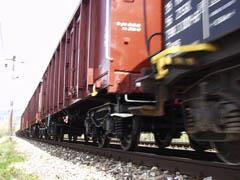
EUROPE: Representatives from seven major rail freight operators signed an agreement in Zürich on February 18 to establish a new alliance for the operation of international wagonload traffic. The agreement was signed by the chief executives from CD Cargo, CFL Cargo, DB Schenker Rail, Green Cargo, Rail Cargo Austria, SBB Cargo and SNCB Logistics.
The Xrail alliance is intended to improve the competitiveness and efficiency of wagonload operations, which currently account for almost half of all rail freight in Europe. The partners believe that making wagonload ‘more customer friendly’ will help ‘to take traffic off the roads and protect the environment’.
‘Close co-operation on production and information processes can help us unlock significant potential in efficiency and quality’, said Xrail Project Leader Günther Ferk. Focusing on cross-border operating standards is intended to achieve reliability rates of around 90%. Active information systems are intended to provide ‘transparency’ so that shippers can access timetables from origin to destination and track the movement of their consignments. And the partners have committed to taking no more than three days to provide an offer when asked to quote for a wagonload movement.
The creation of Xrail follows the successful completion of a pilot programme launched in 2007 under the leadership of the International Union of Railways. During this phase, the partners have been developing international production standards, and IT tools, as well as quality improvement measures. ‘The alliance is laying the foundation for a sustainable wagonload network throughout Europe’, said UIC Freight Director Oliver Sellnick.
The Xrail network will initially connect the main economic areas in Austria, Belgium, Czech Republic, Germany, Luxembourg, Sweden and Switzerland, largely using the TEN-T corridors. The alloance intends to expand in stages, with a long-term goal that it should eventually cover the entire European wagonload network.
Wagonload traffic in most countries has been loss-making in recent years, but the partners recognise that around 90% of the costs are fixed. Therefore they intend to 'take every opportunity' to attract additional traffic, in order to spread the fixed costs over a wider base, and ‘make optimum use of their respective networks’.
Xrail is intended to focus on the operation and management of wagonload services, leaving commercial aspects such as customer liaison and pricing, as the direct responsibility of the participating railways, who will continue to compete with each other. However, all of the partners have committed to meeting common standards for quality and service.

















